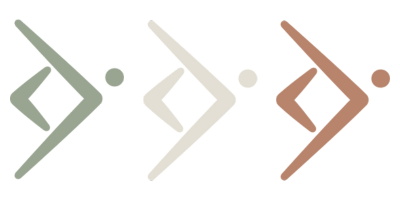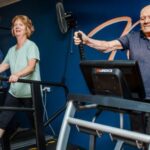Many people see Exercise Physiologists to improve their health and wellbeing, for the management of a chronic condition, or to receive support for injury recovery. They can help to improve fitness, achieve wellness goals or to exercise more safely.
However, you might be wondering what exactly an Exercise Physiologist does, and how do they differ from a Physiotherapist? Throughout this article, we’re going to go into depth in regards to Exercise Physiology, explaining how it differs from Physiotherapy, so that when it comes to making a decision about your health and wellbeing, you’ll know if an Exercise Physiologist is the right choice for you.
So, what exactly is Exercise Physiology?
Exercise Physiology is the study of the physiological responses to physical activity and exercise. It encompasses the science of how the body responds to exercise, including the physiological changes that occur in the muscles, cardiovascular and respiratory systems, and the nervous system. An Exercise Physiologist is an accredited healthcare (Allied Health) professional who specialises in the science of exercise and movement and its effects on the human body.
Exercise Physiologists can work with individuals of all ages and fitness levels, from athletes to those with chronic health conditions. They use their knowledge of exercise science and disease states and progressions, to design and implement movement (exercise) programs that are safe, effective, and tailored to the specific needs of each individual. Exercise Physiologists also work to promote healthy behaviours and lifestyles, such as regular physical activity, healthy eating, and stress management.
How are Exercise Physiologists qualified?
In Australia, in order to practise, an Accredited Exercise Physiologist must have a university degree in exercise physiology /rehabilitation that meets the standards as set out by the governing body Exercise and Sport Science Australian (ESSA) for accreditation. Accredited Exercise Physiologist must complete ongoing professional development throughout their career and are governed by a Code of Ethics.
Do I need a doctor’s referral to see an Exercise Physiologist?
While doctors and other healthcare professionals do often refer patients to Exercise Physiologists, you don’t need a referral to see one. As with all Allied Health Professionals, you may be referred by your GP to an Exercise Physiologist under an Chronic Disease Management Plan which allows you to access rebates for Exercise Physiology services under Medicare
When should I see an Exercise Physiologist?
It is well known and proven many times over in current research, exercise has a wide range of positive effects, and hence it would make sense that there are many ways in which an Exercise Physiologist can help.
Some common conditions that Exercise Physiologists can treat individuals with include:
- Cardiovascular disease such as post surgery (bypass), heart attack, angina
- Pulmonary disease such as emphysema, and COPD
- Metabolic disease such as diabetes,
- Neurological disease such as stroke, Parkinsons’ Disease, Multiple Sclerosis, Cerebral Palsy, spinal injury,
- Musculoskeletal disease/conditions such as arthritis, osteoporosis/osteopenia, acute and/or chronic musculoskeletal issues, tendinopathies,
- PTSD, Anxiety, Depression and other mental health conditions
- Cancer during and post-treatment
- Fatigue based conditions such as Chronic Fatigue and Fibromyalgia
- Chronic Pain
- Assessments of functional capacity
- Advice on lifestyle modification to improve health status
- Exercise prescriptions for strength and function improvement pre- and post-surgery
- Workplace assessments.
What’s the difference between an Exercise Physiologist and a Physiotherapist?
While Exercise Physiologists and Physiotherapists both work in the field of healthcare and may overlap in some areas of their practice, there are some important differences between these two professions.
Exercise Physiologists specialise in the science of exercise and its effects on the human body. They have a strong background in exercise science, anatomy, and physiology, and work with individuals to design and implement exercise programs that are tailored to their specific needs and goals. Exercise Physiologists have a strong understanding of injury and disease states, and how these conditions are likely to impact an individual. Exercise Physiologists use this knowledge and information from their clients on how they are affected by their conditions to prescribe activity. The overall goal of the intervention is to improve their clients quality of life through aspects such as improved function and understanding of the condition, and give them strategies to help improve their management of their health and conditions.’
On the other hand, Physiotherapists specialise in the assessment, diagnosis, and treatment of musculoskeletal conditions and injuries, usually in the acute phase of injury. They use a range of techniques, such as manual therapy, and modalities like ultrasound and electrical stimulation, to help patients recover from injuries or manage chronic conditions like arthritis or back pain. It is also common practice for Physiotherapists to prescribe exercise to strengthen the injured area. As with Exercise Physiologists they also work with individuals who have suffered injuries or disabilities to help them regain mobility, strength, and function.
Keep in mind many Allied Health modalities have a crossover of skills, such as OT may prescribe exercise, and Osteopaths and Chiropractors will use manual therapy. It is also common practice for practitioners to work together when seeing a mutual client to ensure the best outcomes for the client.
Where to from here – is an Exercise Physiologist the right practitioner for me?
Exercise Physiologists play a critical role in promoting healthy behaviours and lifestyles, designing and implementing safe and effective movement/exercise programs, and working with individuals to help them achieve their health and fitness goals, in addition to improvements in quality of life, function and mobility.
While Exercise Physiologists and Physiotherapists may share some areas of practice, such as working with individuals who have medical conditions or injuries, there are important differences between these professions. Physiotherapists focus on diagnosing and treating musculoskeletal conditions, while Exercise Physiologists specialise in designing exercise programs to improve overall health and fitness. It is important to work with a practitioner that you feel listens and understands how you are impacted by your conditions and works with you to gain improvements.
Whether you are looking to improve your fitness levels, manage a chronic medical condition, or recover from an injury, working with an exercise physiologist can be a great way to achieve your goals. By taking a personalised approach to movement , Exercise Physiologists can help you develop a plan that is tailored to your unique needs, preferences, and goals, and support you along the way to ensure that you stay on track and achieve the results you are looking for.
If you’d like to get started with Exercise Physiology today, contact our friendly team today for more information on how we can work together and help you to achieve your health goals this year!










